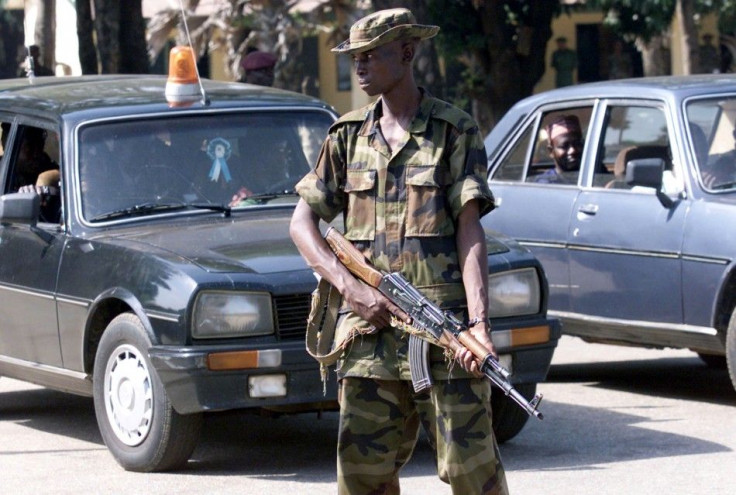Nigerian Gunmen Storm Church, Kill Two in Latest Militant Attack

Gunmen attacked a church in Nigeria late Thursday, killing at least two people.
A riot broke out following the attack in the town of Zonkwa, in the central Kaduna state. Kaduna was the site of massive violence following Nigerian presidential elections in April. Around 300 were killed in the region, while upwards of 800 more were killed in northern states.
Kaduna is geographically and demographically located between Nigeria's primarily Christian south and Muslim north.
The state elected its first Christian governor, Patrick Ibrahim Yokowa , who is part of President Goodluck Jonathnan's People's Democratic Party, in April.
Violence in Nigeria spiked after the elections and is primarily concentrated in the north, particular in the Borno state, home to the radical Islamic militant group Boko Haram.
Boko Haram's name roughly translates into western education is a sin, and the latest violence is part of an ongoing religious movement to make Nigeria a Muslim state under Sharia law.
Attacks are a regular and steady occurrence in some parts of the country. Last month, Nigerian MP Modu Bintube was killed by Boko Haram at his home in Maiduguri, the capital of Borno, in what is probably the highest profile assassination in years.
Earlier in the month, the Islamic militants stormed the village of Ligyado in Zamfara State, reportedly going from house to house with AK-47 rifles, daggers, machetes and sticks, robbing and killing. Twenty-three people were killed, and the village was completely deserted after the attack.
Boko Haram have also targeted police chiefs, government officials and was reportedly behind the United Nations suicide bombing in Abuja that killed 23 people in August.
While Boko Haram has been around since 2009, and militancy in the country in general has been around for three decades, the most recent wave of terror stems directly from Northerners' distaste with the April elections.
Nigeria's presidency is supposed to switch between a Northerner and a Southerner in each election, but because Jonathan's successor, who was from the north, died in office, Jonathan technically began his second term. The election results were constitutionally sound, but people in the north felt short-changed by having a second Southern president in a row.
Jonathan ran against Muhammadu Buhari, whom people in the north viewed as an agent for social change. Many Northerners believed that the elections were stolen from them, and their perceived lack of representation has sparked the outrage that fuels Boko Haram.
This widespread dissatisfaction might be part of the reason that Boko Haram has so far been so hard to stop. Boko Haram has mostly attacked government buildings and institutions -- although civilian casualties have certainly occurred -- and people in the frustrated north are thought to be sympathetic.
The local people love us, they support us and the locals will never betray us because they believe in our cause, Boko Haram said in a statement.
Last month, a Nigerian Christian leader named King Olutanmole Universe said that the Boko Haram are punishments from God, and that Jonathan must repent and find his way back to the church before it is too late.
If God is angry, He expresses His displeasure in diverse ways, he said from the city of Akure. God might be expressing His displeasure in our sins through Boko Haram's incessant bombings. Therefore, it is very pertinent for Nigerians to retrace their steps back to God, particularly the number one citizen of Nigeria [Jonathan] before the entire nation is bombed.
© Copyright IBTimes 2025. All rights reserved.




















